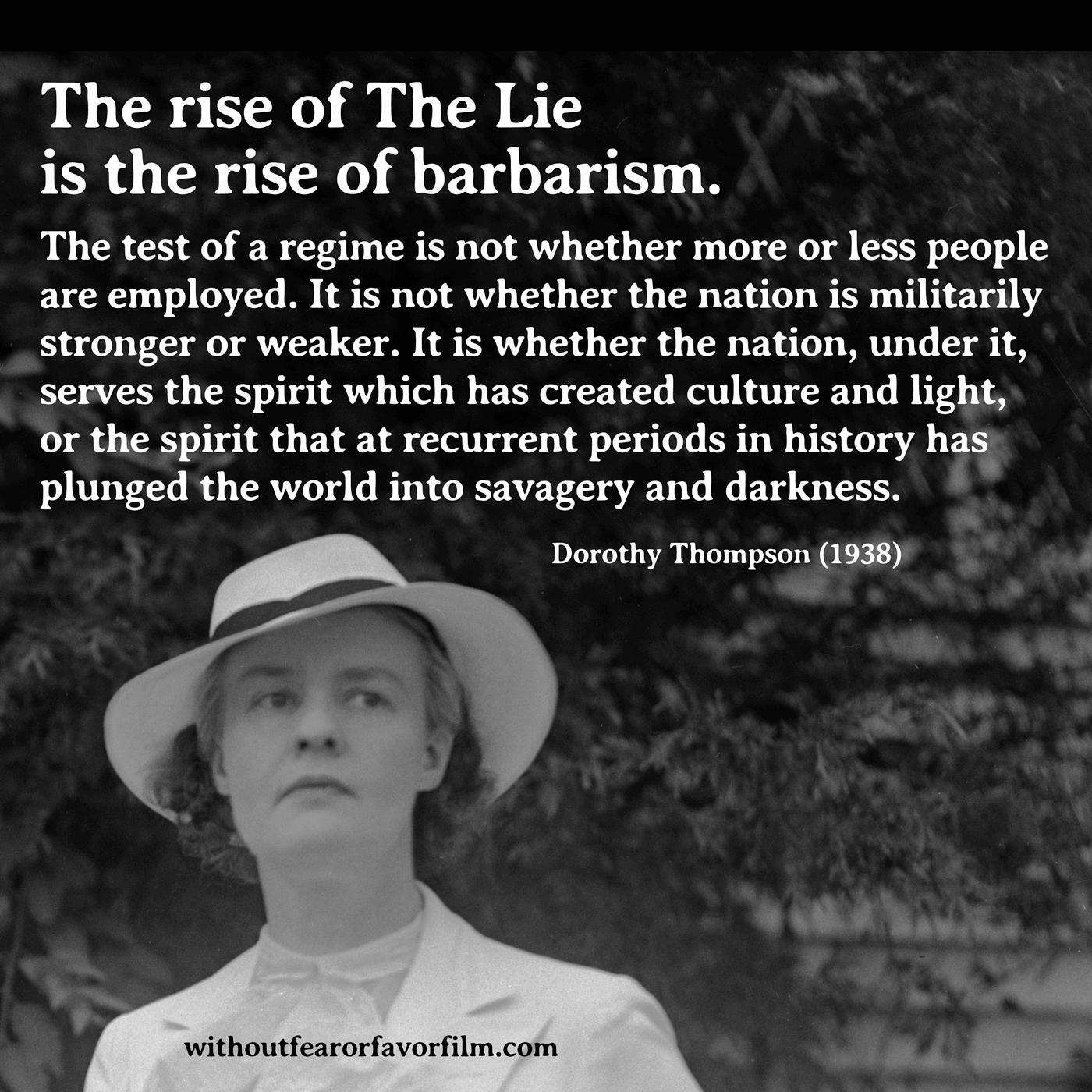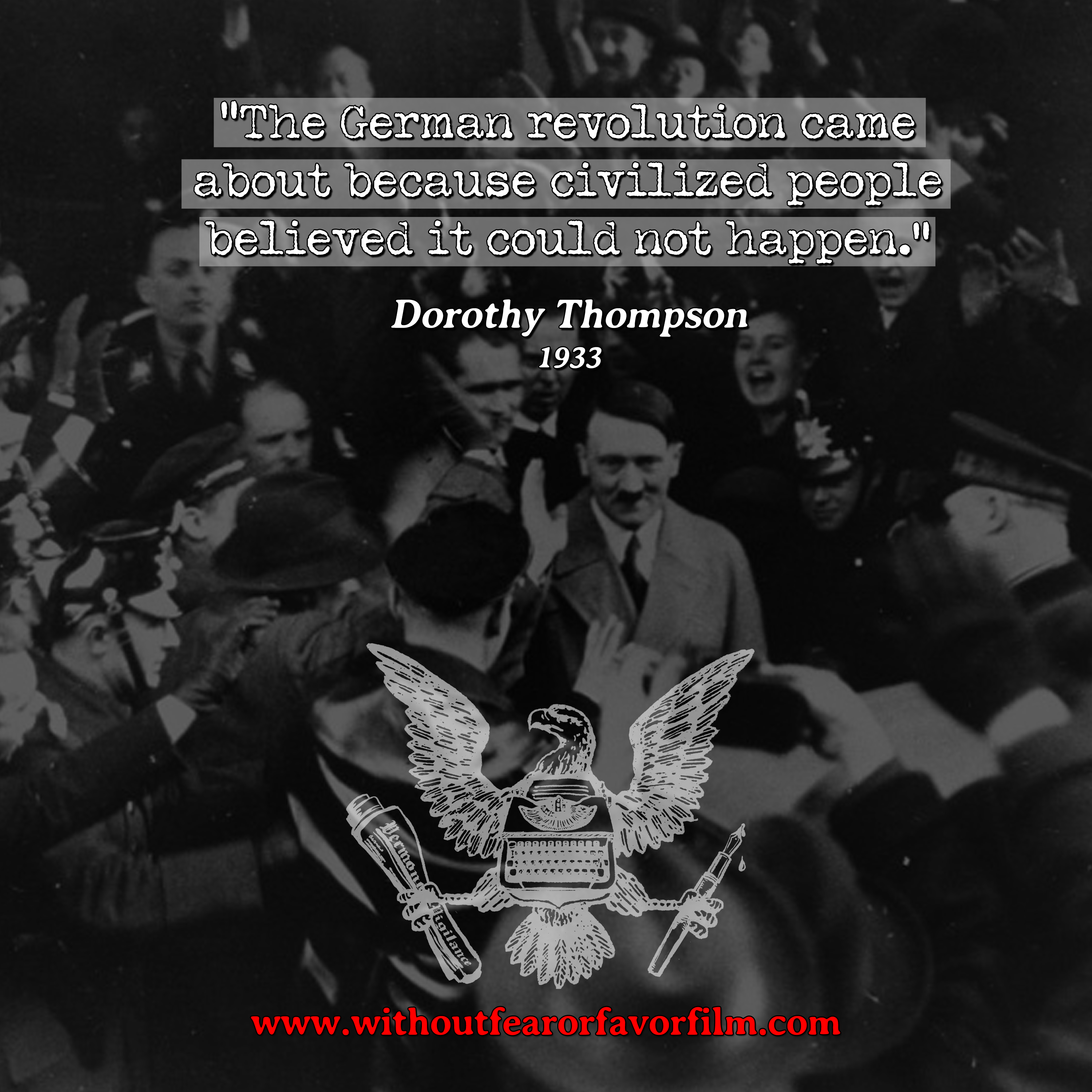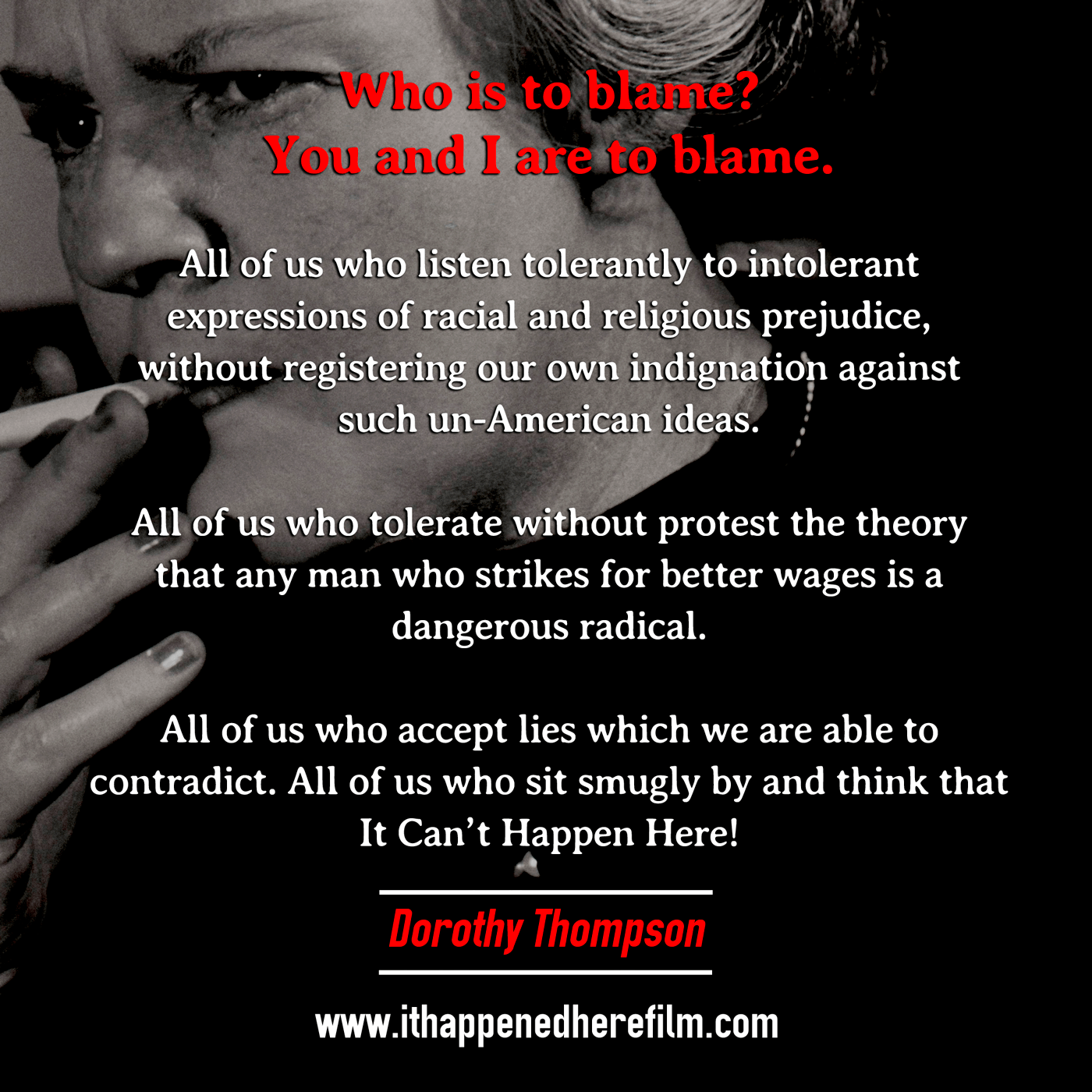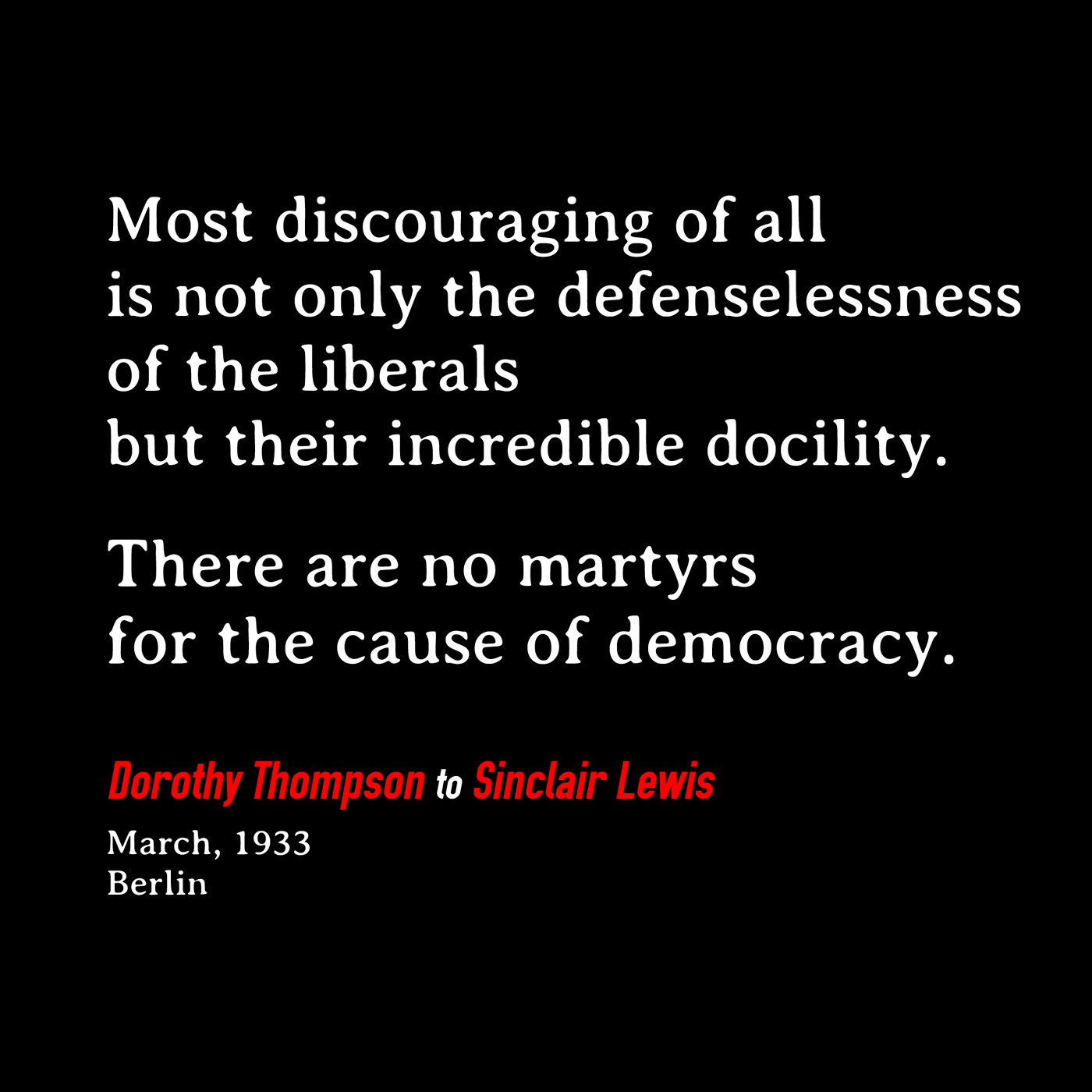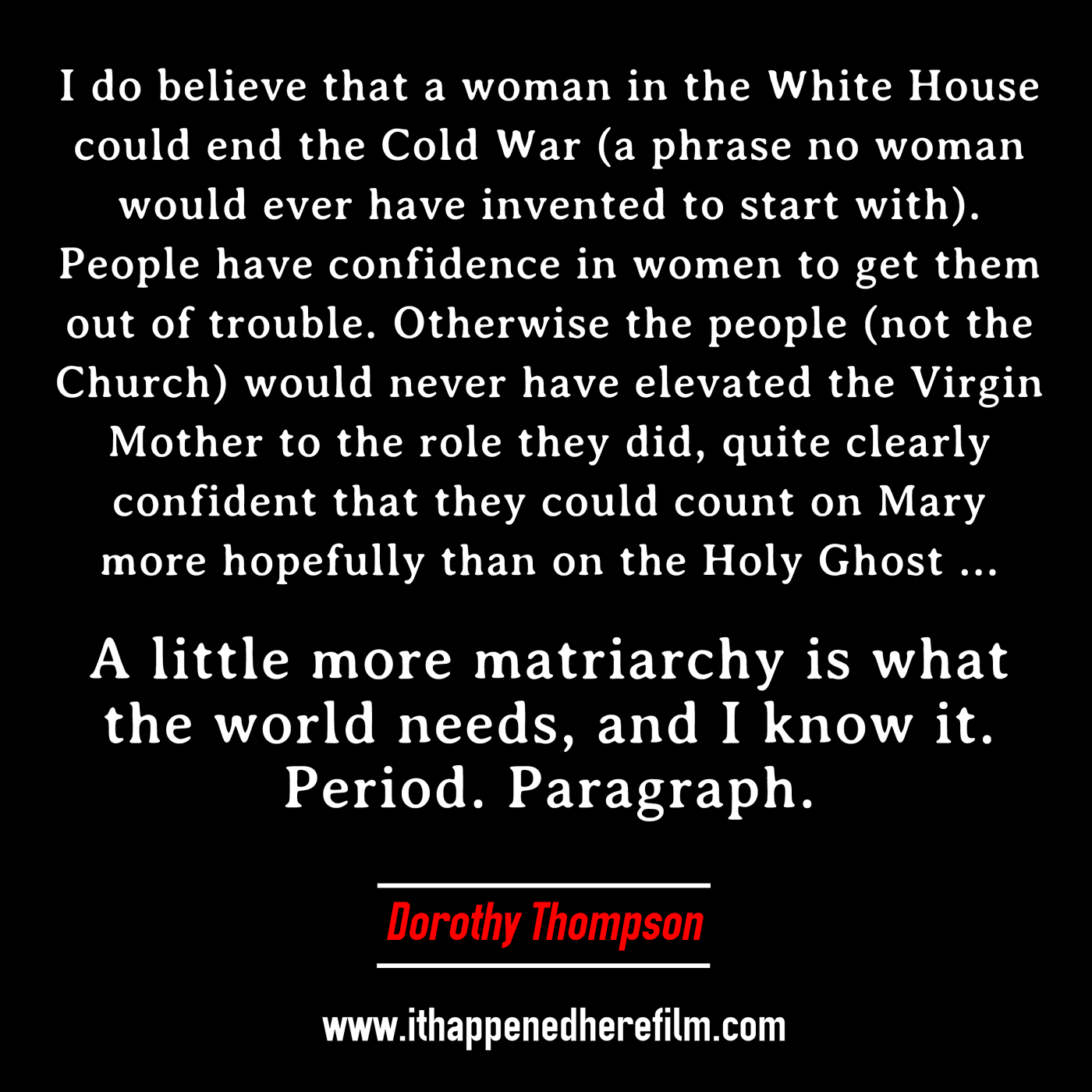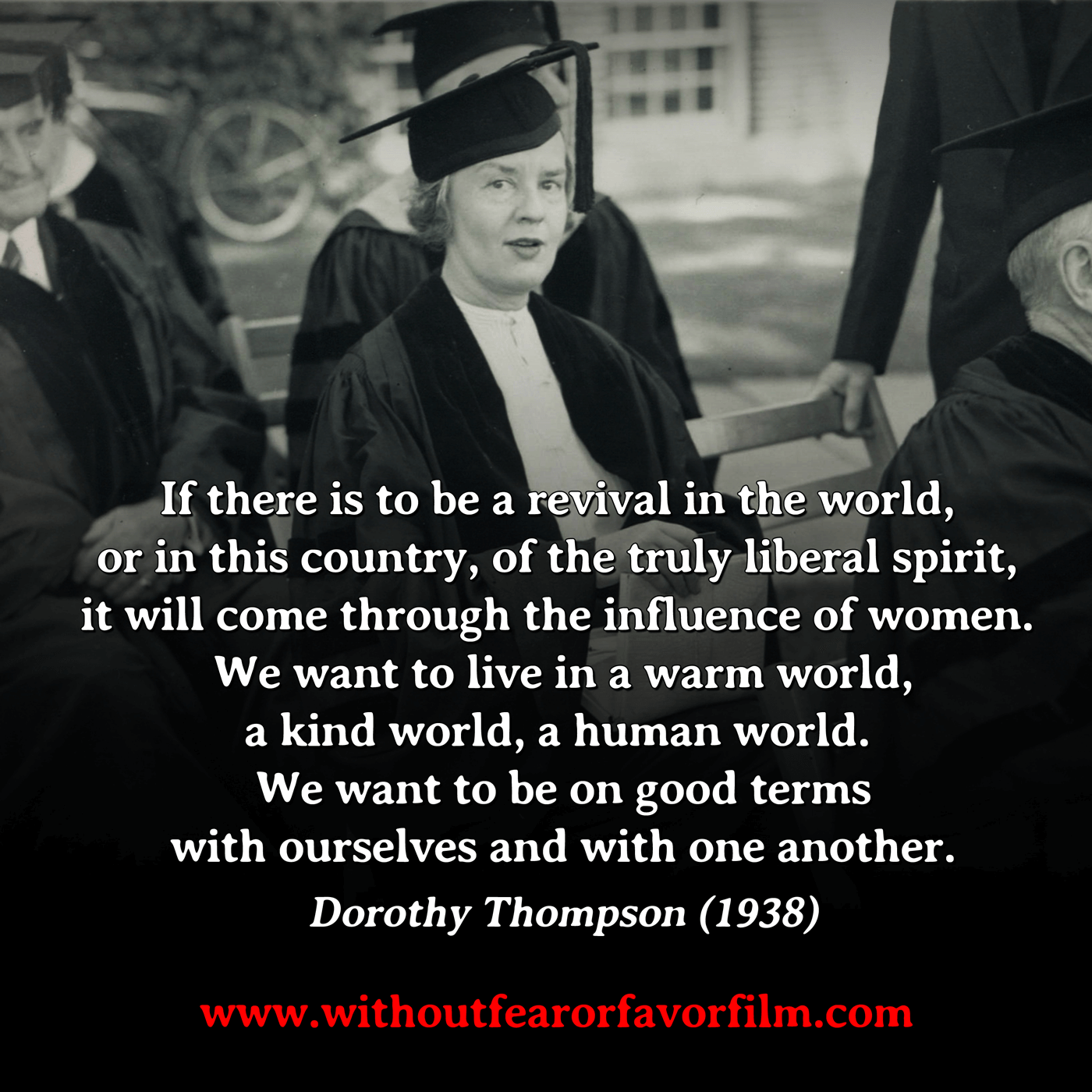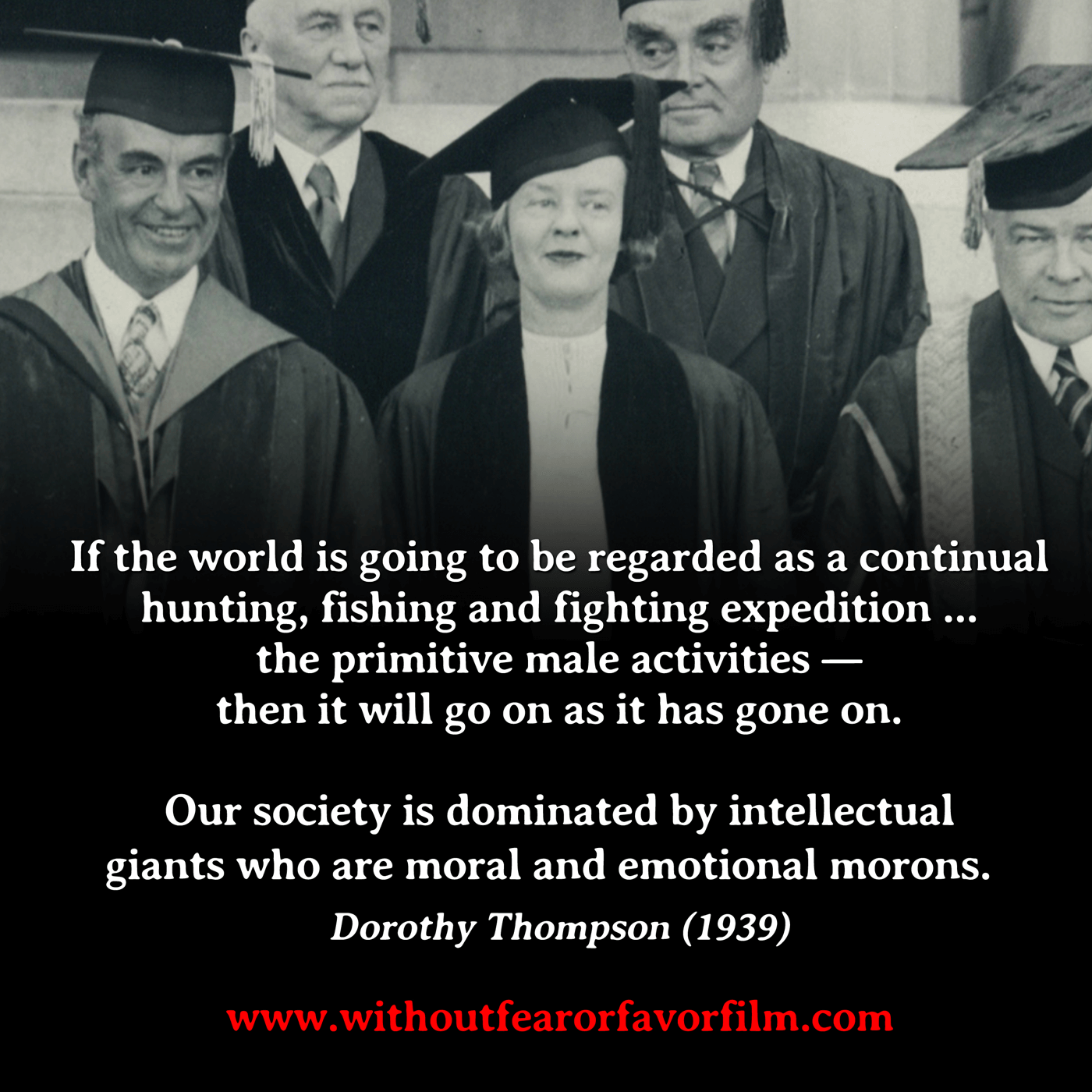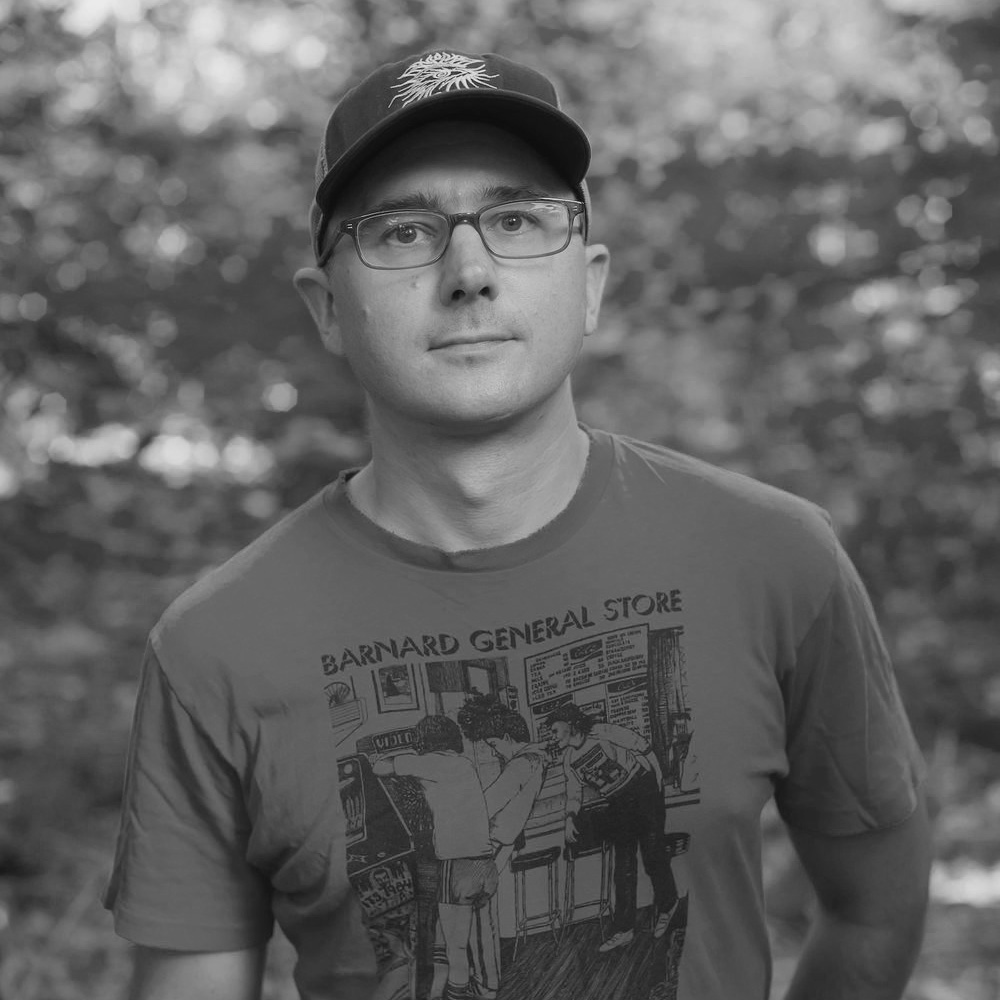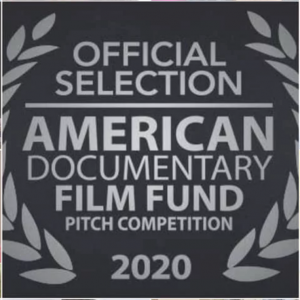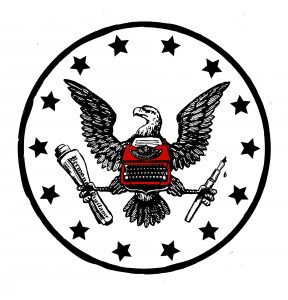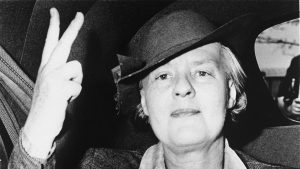
Dorothy Thompson’s Warnings to the West
War correspondent, syndicated columnist, and public speaker, Dorothy Thompson was America’s leading voice against fascism and for supporting refugees before and during World War Two. She was the first American woman to lead a foreign press bureau and the first Western journalist expelled from Nazi Germany. Thompson’s reporting from Europe, with relevant warnings about the fragility of western civilization, inspired her husband, Nobel Prize-winner Sinclair Lewis, to write his 1936 (and 2016) bestseller “It Can’t Happen Here,” a satirical depiction of a fascist’s rise to power in America. Before her death, Dorothy Thompson advocated for international disarmament, world federation, and more women in positions of power, including a woman as U.S. president; some of her contemporaries even suggested her for the job.
As one of the leading journalists of her time, and with a reputation that bordered on legendary, Dorothy Thompson often risked her career and her life to learn the truth and report it to her readers and listeners – more than 10 million Americans every week.
Without Fear or Favor is the story of this extraordinary reporter’s professional, emotional, intellectual, political, and spiritual journey as an active participant in the 20th Century’s most transformational events: women’s suffrage, post-WWI reconstruction, the Great Depression, the rise of nationalism and fascism, World War II, the dawn of the nuclear age, and the Cold War.
A fearless and uncompromising truth-teller, Dorothy Thompson raised the alarm whenever threats to a free press and civil society appeared, and she expected her audience to rise to the challenge. She was committed to the defense of liberal democracy from enemies both foreign and domestic, and boldly personified the power of a free press and the Fourth Estate.
Many of Dorothy Thompson’s words and warnings still resonate today – some more loudly than in her own time.
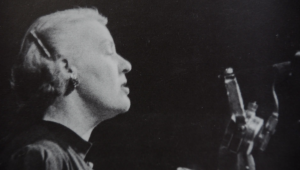
“No other individual so symbolizes the American qualities of courage,
intelligence and a recognition of the dignity of man.”
– Sara Delano Roosevelt
“Our self-appointed anti-fascist Joan of Arc.”
– Margaret Marshall
“I would rather have her for me than a thousand others.”
– Franklin Delano Roosevelt
“She is worth a full regiment to the fight for freedom.”
– Winston Churchill
“Names like Dorothy Thompson will shine as an inspiration
to countless generations to come.”
– Rabbi Julius Silberfeld
“She is the awakener of the American conscience.”
– Albert Einstein
“The scum of America.”
– Joseph Goebbels
“No people ever recognize their dictator in advance.
He never stands for election on the platform of dictatorship.
He always represents himself as the instrument – the Incorporated National Will.
When our dictator turns up you can depend on it that he will be one of the boys,
and he will stand for everything traditionally American.
And nobody will ever say ‘Heil’ to him, nor will they call him ‘Führer’ or ‘Duce.’
But they will greet him with one great big, universal, democratic,
sheeplike bleat of ‘O.K., Chief! Fix it like you wanna, Chief! Oh Kaaaay!’ ”
— Dorothy Thompson, 1937
A Story for Modern Times
Journalism and democratic institutions are under threat in America and around the globe like never before, and the protection of a free press – enshrined in our founding documents as a necessary check against the abuses of power – has been compromised by political and commercial interference and the widespread manipulation of public opinion. In times like these, stories from the past can help us understand, navigate, and respond to the troubles of the present.
This film honors a forgotten trailblazer of international journalism and serve as a call to action to rediscover our history, recover from historical amnesia, engage our civic responsibilities, and re-imagine the future of America and the world.
“We can go back to the Dark Ages.
The crust of learning and good manners and tolerance is so thin!”
– It Can’t Happen Here
by Sinclair Lewis
PRODUCTION TEAM
Teo Zagar’s first feature-length documentary film about Slovenia’s War for Independence from Yugoslavia won the Best Five College Filmmaker Award at the 2003 Northampton Independent Film Festival. Mind Games: A Love Story, depicted a family overcoming Lou Gehrig’s Disease, winning the Director’s Award at the 2006 Hearts and Minds Film Festival and presented at the Sun Valley Spiritual Film Festival and on Vermont Public Television. Teo’s other credits include Ken Burns’s Horatio’s Drive, Florentine Films’s Ohio: 200 Years, Joanna Lipper’s The Supreme Price, and Josh Melrod’s Cartoon College. He recently co-produced the independent feature, Major Arcana, also directed by Josh Melrod, featured at the 2018 Raindance and Austin Film Festivals.
Teo served in the Vermont House of Representatives between 2011 to 2016 as a member of the Agriculture Committee. He lives and works off-the-grid in a solar powered studio in Dorothy Thompson’s hometown.
Sheila Maniar
Producer

Sheila Maniar is a New York-based filmmaker whose recent credits include the Emmy-nominated Through A Lens Darkly, which premiered at the 2014 Sundance Film Festival; Coordinating Producer for Daisy Bates: First Lady of Little Rock, for PBS’s Independent Lens; US Associate Producer for Trump: An American Dream (Netflix); and US Production Manager for One Thousand Pictures, for the Scottish-based company Lichen Films, airing on HBO and short-listed for Oscar contention. Miss Maniar also has multiple credits as an associate producer: Wilhemina’s War which aired on PBS’s Independent Lens in 2016, The History Channel’s 2015 The Making of Trump, PBS’s American Experience Citizen King, Discovery Science’s Ecotech: Building Green, and the History Channel’s WWIII: Beyond Lebanon. In addition to her producing projects, Miss Maniar has extensive archival research and clearance experience including the Oscar-winning Citizenfour, the independent feature Parts Per Billion, Showtime’s Kobe Bryant’s Muse, and TV One’s 2008 four-part series Murder in Black and White. Miss Maniar was the Archival Clearance Researcher for Jonathan Demme’s Academy Award-nominated Mandela: Son of Africa, Father of a Nation, the Projection Researcher for the Tony-nominated play Evita, and most recently collaborated on the The Public Image is Rotten, which premiered at the 2017 Tribeca Film Festival, and the Grammy-nominated Two Trains Runnin’.
Rachel Cunningham
Producer

Rachel Cunningham is a former journalist and early backer of the award-winning Be Natural: The Untold Story of Alice Guy-Blaché (Cannes 2018). Cunningham studied filmmaking in London while working full-time at an international investment banking firm. She served in various production and post-production roles while working on independent films in the U.K. and the U.S., including Todd Haynes’ Safe (1995), and Charles Burnett’s The Glass Shield (1994). Cunningham moved to Vietnam where she helped edit a 2012 short film on contemporary dance, and curated an Irish film festival at the Hanoi Cinematheque, where she met BAFTA-nominated director Hong Khaou. Cunningham later helped facilitate filming in Hanoi for Khaou’s Monsoon (2019).
Rachel Reichman
Story Consultant
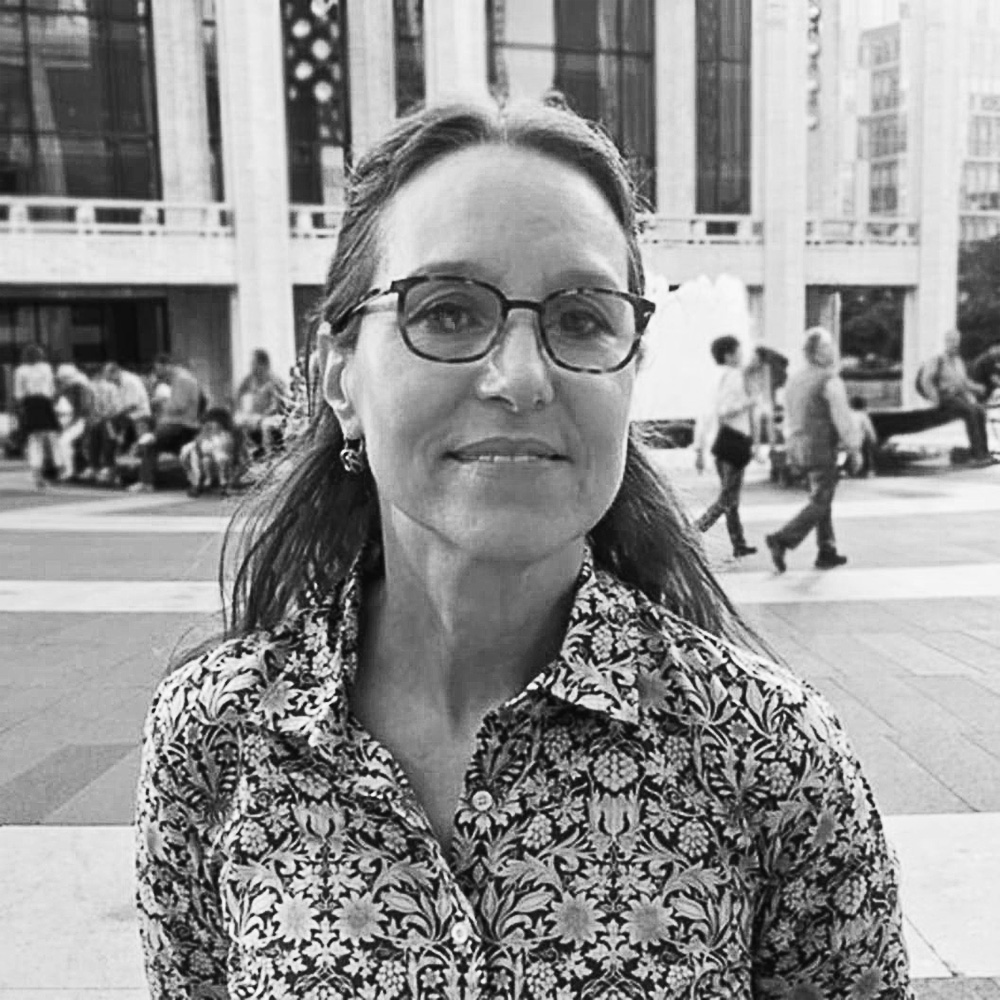
Rachel has been making moving pictures in NYC for more than 20 years. Her recent project, Hitchcock/Truffaut, which she produced and edited, opened theatrically in 20 cities and is currently streaming on HBO. Rachel has edited projects for PBS’s Wide Angle, Great Performances, American Masters and Live From Lincoln Center. Her other films have aired on National Geographic, Discovery Channel, ABC, AMC, MSNBC, Bravo, IFC, History Channel, Court TV, VH1, Gallery HD and New York Times Television. She has edited projects that have won four Emmys, a Peabody, a Sigma Delta Chi Award, the Overseas Press Club Edward R. Murrow Award and two Broadcast Design Awards. She was the editor and co-producer of A Letter to Elia, directed and produced by Martin Scorsese.
Margaret Sclafani
Director of Photography
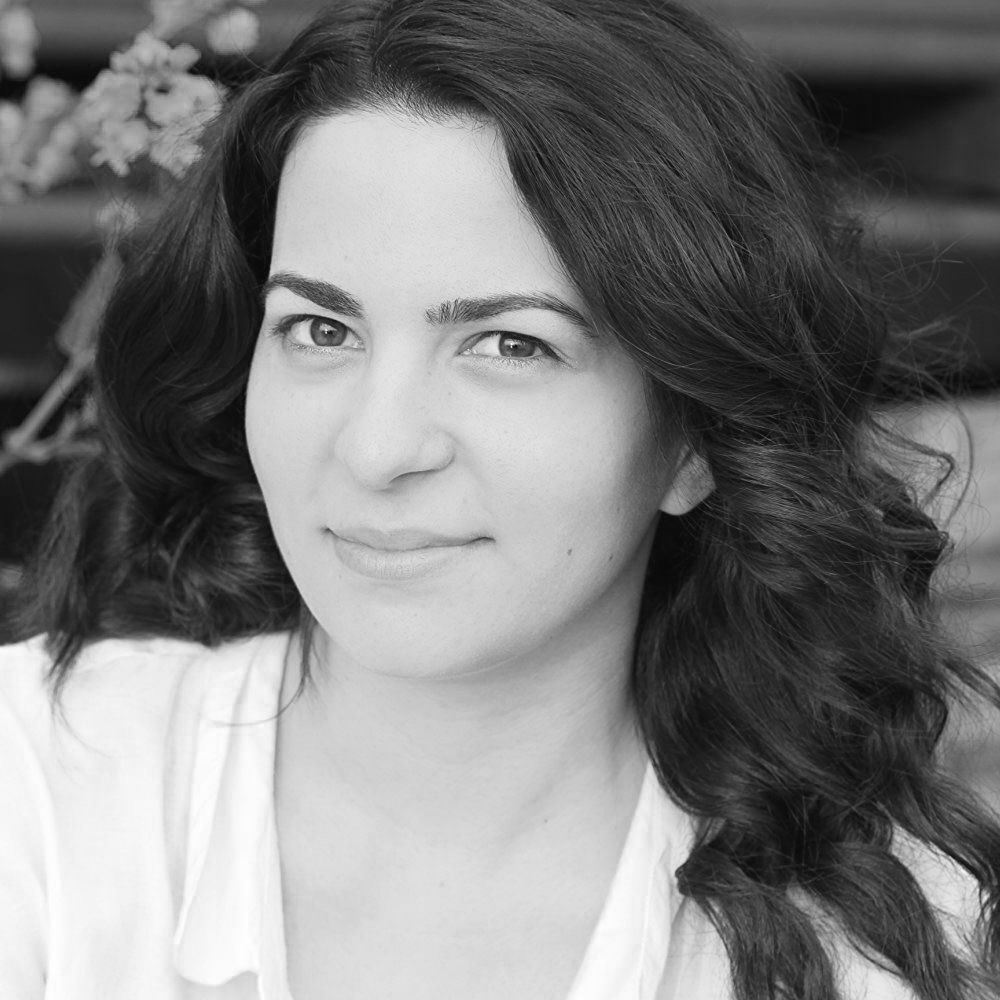
Margaret Sclafani grew up in the Washington, DC area. Following her studies in anthropology and film at Bryn Mawr College, Margaret began her career as post-production coordinator on the feature documentary, Yoo-Hoo, Mrs. Goldberg. She then continued her work as assistant production coordinator on No Job For a Woman: The Women Who Fought to Report WWII. Following her work in production, she went into the camera department, working with award-winning Gage & Gage Productions and Firelight Media on a number of documentary films for PBS. She worked as producer and director of photography for Parent Earth, a non-profit organization that produced over 100 videos for families about healthy eating. She has continued to work as camera operator and director of photography on documentary content for the Whitney Museum, the Irish Arts Center, Room 5 Films, the International Peace Institute, and the Emmy award-winning Media Factory team, among others. In addition to her work in documentary she regularly works on narrative series and films, including her work as cinematographer of the feature film, The Gift. She was a recent grant recipient of the Russo Brothers Film Forum and was honored for her short documentary, Saints of Little Italy.
Consultants & Advisors
Peter Kurth
Author of American Cassandra: The Life of Dorothy Thompson
Richard Lingeman
Editor of The Nation; author of Sinclair Lewis: Rebel from Main Street
Jean-Paul Sinclair Lewis & Gregory Lewis
Grandsons of Sinclair Lewis and Dorothy Thompson


